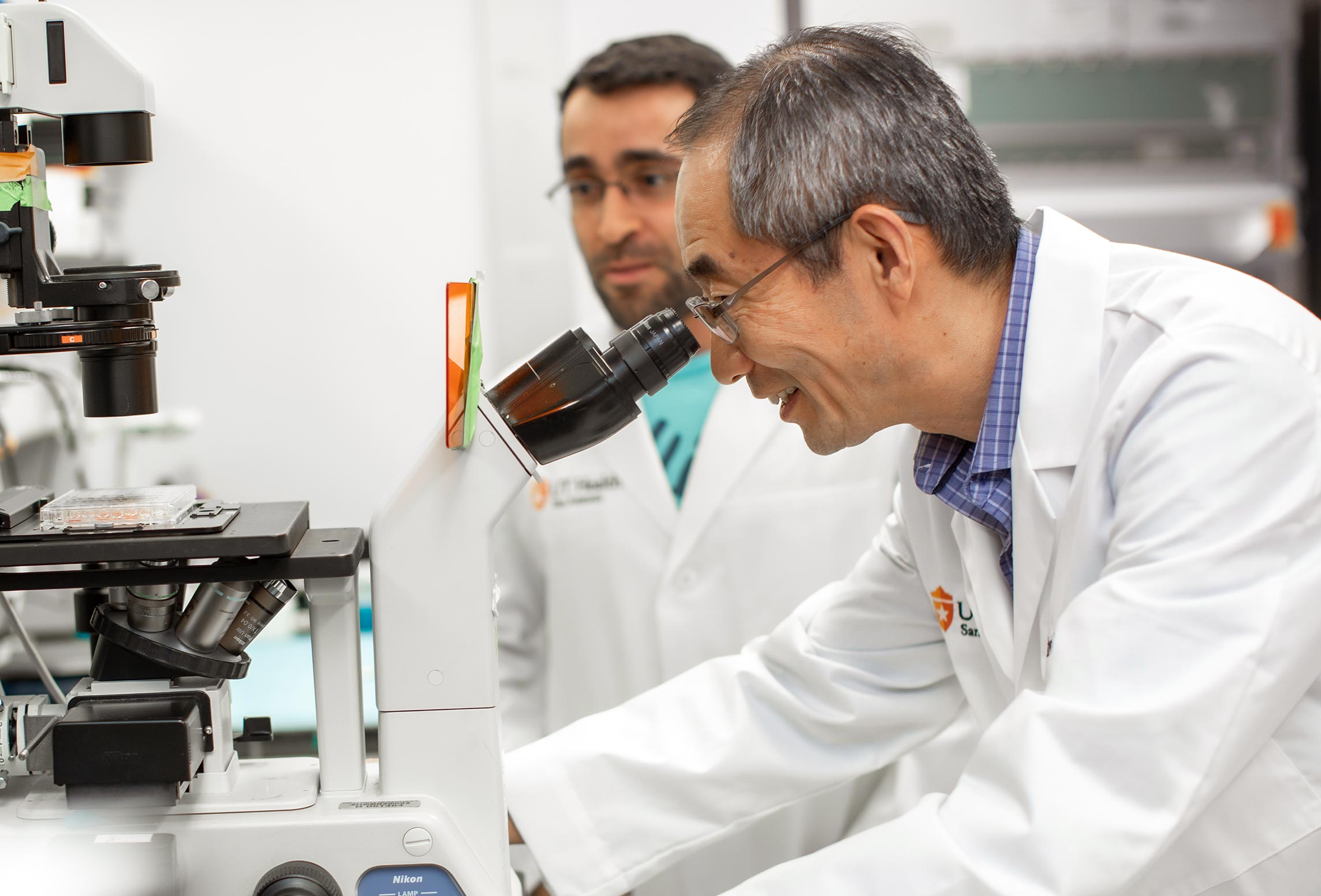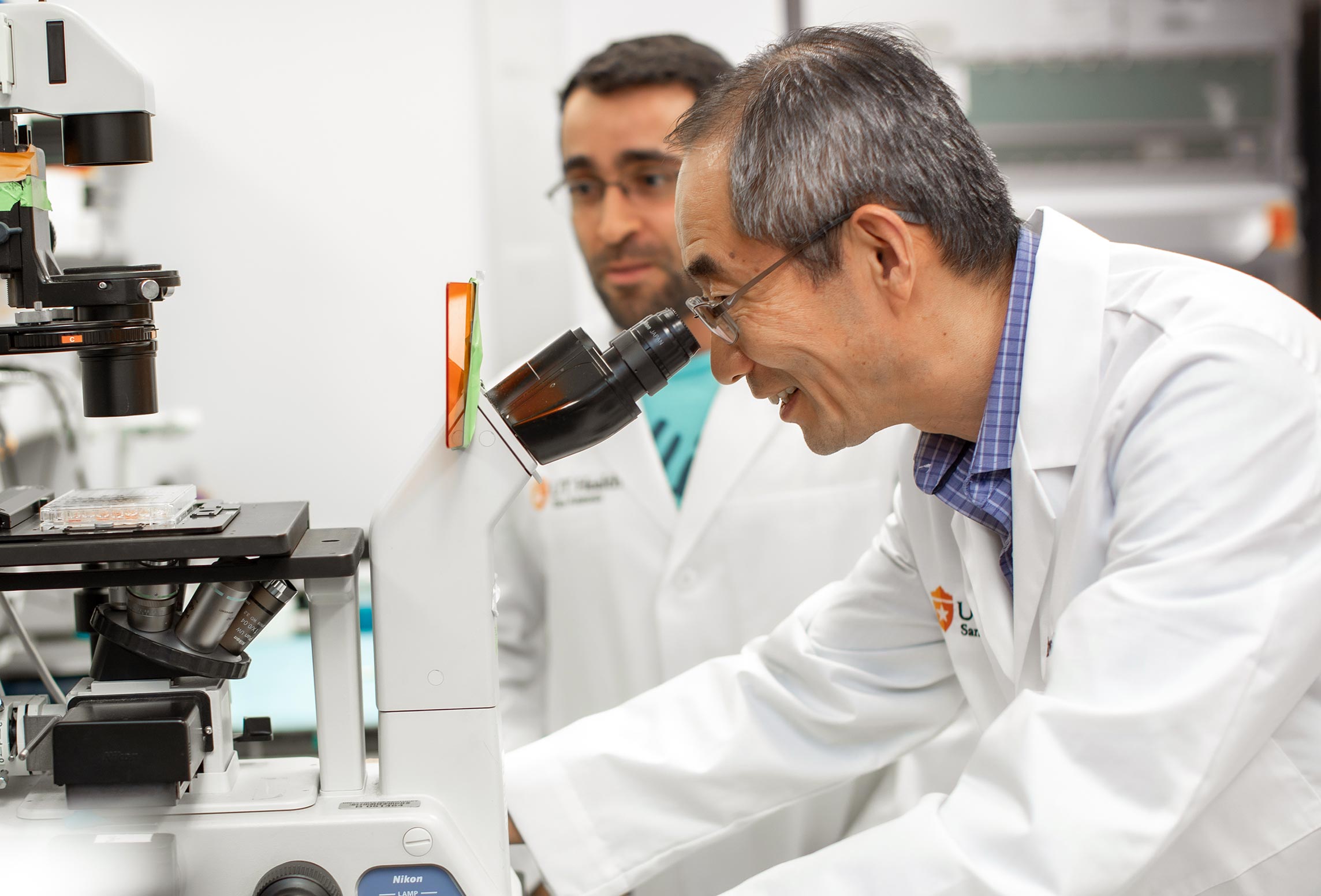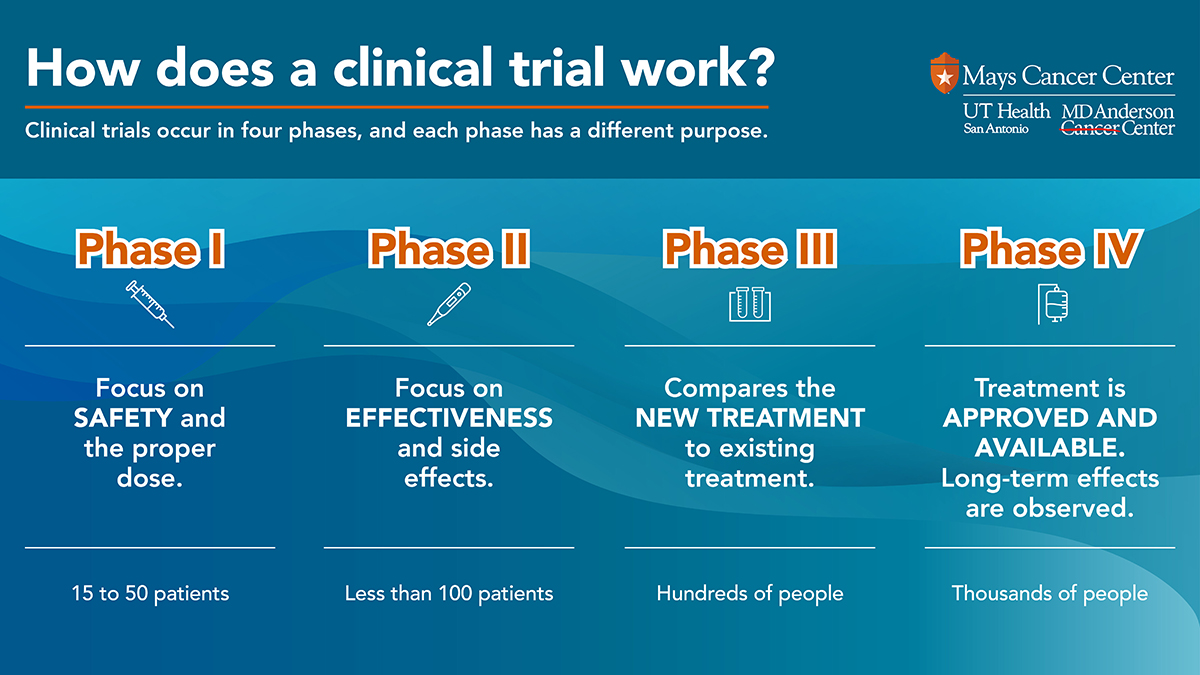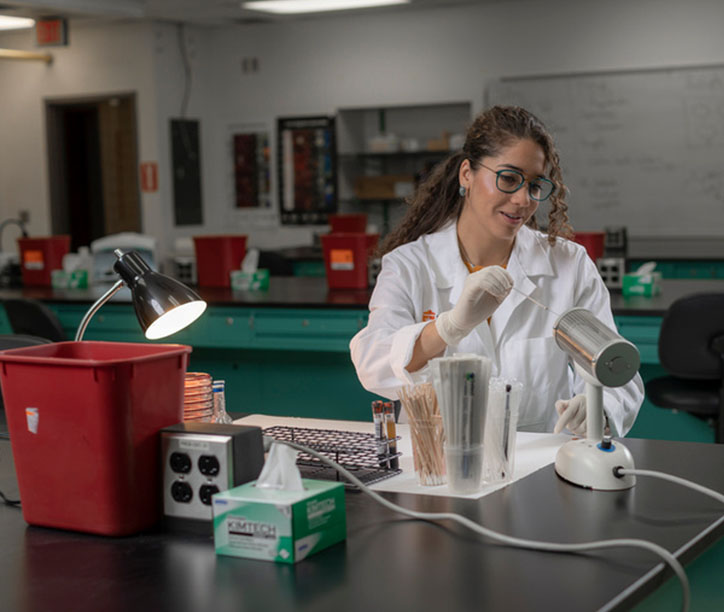

Our Cancer Clinical Trials
For decades, Mays Cancer Center, home to UT Health San Antonio MD Anderson Cancer Center, has been advancing care through clinical research. These efforts give eligible patients access to the next generation of cancer care while receiving services close to home.
Find cancer clinical trials
Receive new cancer treatments and services before they are widely available by participating in cancer clinical trials.

 Close
Close

